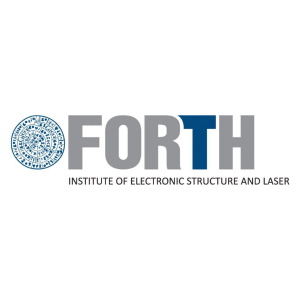
Soft Matter Science is a highly interdisciplinary field comprising fundamental Physics, challenging Chemistry and a wide range of applications related with Materials and Chemical Engineering as well as Biology and Bioengineering. The Soft Matter research groups of the Host Institute (FORTH) have established its position as an international pillar in soft matter research, by working at the forefront of these topics, utilizing a variety of experimental and synthetic techniques as well as computer simulations and collaborating with world class academic and industrial partners around the globe. The activity incorporates about 15 senior researchers working on Soft Matter research comprising of four groups:
Institute of Electronic Structure and Laser-FORTH is one of seven research institutes comprising the Foundation of Research and Technology – HELLAS (FORTH). Its research activities cover the areas of Lasers and Applications, Soft Matter and Material Science, Microelectronics and Theoretical and Computational Physics and Chemistry. IESL’s staff includes 55 senior researchers (some in joint appointments with University of Crete), 37 laboratory scientists, 140 post-doctoral researchers and graduate students, and 17 technical/administrative personnel.
The Polymer & Colloid Science group of IESL consists of 5 senior researchers, with a longstanding experience in the fundamental study of structure, dynamics and rheology of polymer and colloid-based materials, and currently about 15 graduate students and post-docs. Its activities focus on the fundamental understanding of the structure-properties relationship in soft matter utilizing a combination of a broad range of techniques including state-of-the-art Light Scattering, rheology and rheo-optics (light scattering under shear and rheo-confocal). Current main research interests include the dynamics and rheology of polymer solutions and melts, and colloidal suspensions, glasses and gels.
The Materials Synthesis Laboratory of IESL has extensive experience on the synthesis, characterization and applications of polymeric and organic/inorganic hybrid materials, polymer colloids, “smart” stimuli-responsive materials, water-soluble/amphiphilic polymers, biologically active (co)polymers, polyelectrolytes/polyampholytes, microgels/hydrogels, supramolecular assemblies, micellar structures and surface modification methods. The key infrastructure the group has access to, includes high-vacuum techniques, solvent purification apparatus, centrifuge, size exclusion chromatography, nuclear magnetic resonance/infrared/Raman/UV-vis spectroscopies, thermal analysis, spin-coater, mechanical tester, etc. MSL is an internationally-renowned group (currently hosting 2 post-docs and 6 graduate students) in the field of responsive polymers and colloids with extensive experience in national and European research and training programmes.
The Hybrid Nanostructures group of IESL develops functional material nanostructures with specifically designed and optimized properties as well as tuning capabilities and are appropriate for definite scientific and technological applications focusing on understanding the relationship between microstructure-dynamics-properties of polymeric and hybrid materials. Main activities include morphology and dynamics of multi-constituent polymers in bulk and confinement, polymer surfaces, interfaces and thin films, polymer coatings, functional and responsive polymer materials, and nanocomposites. The group consists of 4 senior members, 1 post-doc, 10 students and 1 technician.
Institute of Applied and Computational Mathematics (IACM)-FORTH is one of the research institutes of FORTH and a national center on applied and computational mathematics. Its research activities concern many areas of computational sciences, including multi-scale simulations, statistical learning, algorithms and inverse problems.
The Mathematical and Computational Modeling group of IACM-FORTH has strong expertise on the development, and application, of novel computational approaches for the study of soft matter systems at the molecular level aiming on providing a fundamental understanding of their behavior, and that can lead to computer-aided design of materials with the desired properties. Hierarchical simulation methodologies are developed across various scales, from ab-initio to atomistic up to mesoscopic level, stochastic methods and machine learning algorithms and applied to a broad range of systems/materials such as nanocomposites, polymers, graphene based nanostructured systems and biomolecules. High performance parallel computational algorithms running over many hundredths of processors are also used. The group (currently hosting 3 post-docs and 6 PhD students) has close collaborations with world-known research groups on theory and computational modeling of complex materials.
SENIOR RESEARCHERS
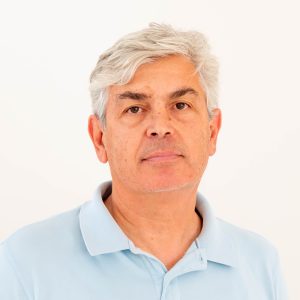
Prof. George Petekidis (COORDINATOR)
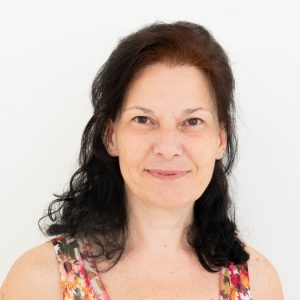
Prof. Maria Vamvakaki

Dr. Benoit Loppinet
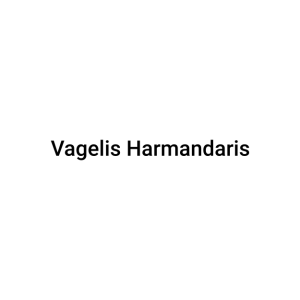
Prof. Vagelis Harmandaris

Prof. Emmanouil Glynos

Prof. Dimitris Vlassopoulos

Prof. Emmanouela Filippidi

Prof. Spyros Anastasiades
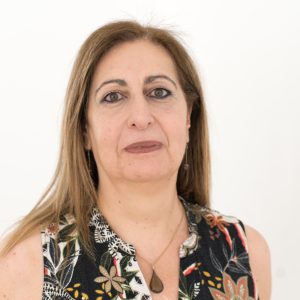
Dr . Kiriaki Chrissopoulou
TECHNICIANS

Antonios Mavromanolakis
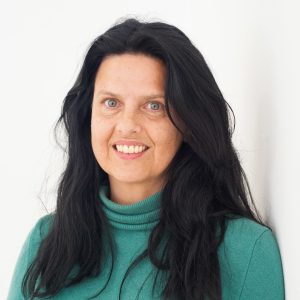
Antje Larsen

Lambros Papoutsakis
RESEARCH FELLOWS

Dr. Evangelia Vasilaki
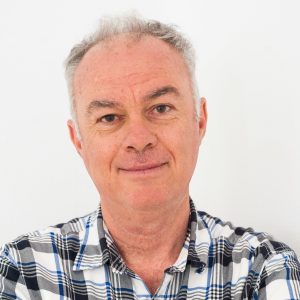
Dr. Thanasis Athanasiou
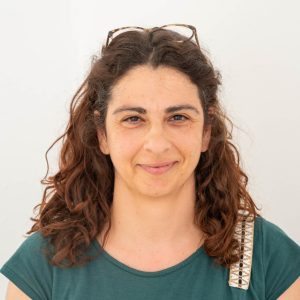
Dr. Maria Kaliva
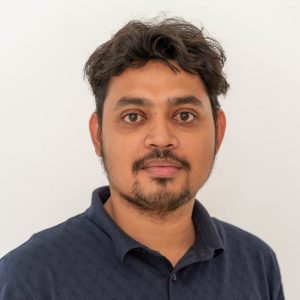
Dr. Sudipta Mandal

Dr. Nikos Burger

phD STUDENT

Master Students

Emmanouil Mathioudakis

Anastasia Tzeiranidi

Ioannis Sampson

Konstantina Lyroni

Thanasis Machas
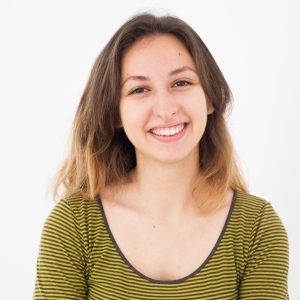
Vasiliki Chrisoulaki
Project manager

Denis Botog


